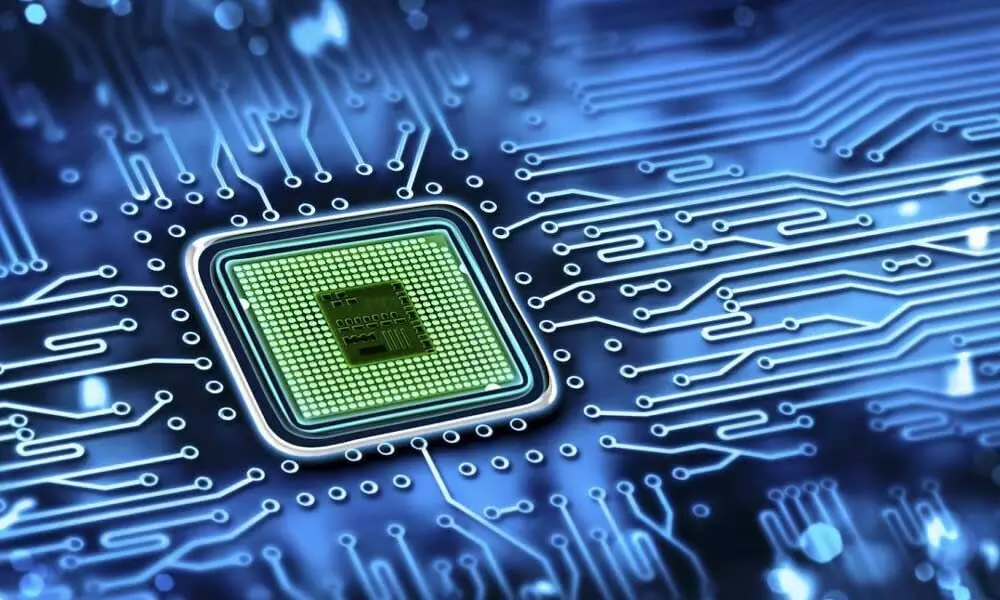Japan's chip future lies in Taiwan science park
The two governments to work jointly with US to counter rising China’s strength
image for illustrative purpose

Japan remains a global leader in the equipment and materials used for production. As chips get increasingly more difficult to make, tighter integration across the supply chain is inevitable. Taiwanese companies, including TSMC and United Microelectronics Corp. have a lot to offer
As much as the US pines for the good old days of global semiconductor supremacy, Japan feels its loss of glory even more. Once a dominant name in electronic components, the nation has been overtaken by South Korea, Taiwan, and, more recently, China. Yet Tokyo may have a viable plan to revitalize its domestic sector.
"Unlike the purely domestic, independent way it was done in the past, I think we need to cooperate with overseas counterparts," Akari Imari, a former economy Minister and senior member of the ruling Liberal Democratic Party, told Bloomberg News's Isabel Reynolds and Emi Nobuhiro this week.
That's remarkable pragmatism for a country whose industrial policy has largely revolved around protecting and isolating its companies to preserve national identity. Yet three decades of decline show that past policies just aren't cutting it.
In 1988, Japan commanded 50 per cent of the global semiconductor industry, according to a presentation this month from the Ministry of Economy, Trade and Industry, METI, that cites data from research firm Omdia. Back then, names such as NEC, Toshiba, Hitachi and Fujitsu occupied six of the top 10 places in market share, alongside American giants Intel and Motorola.
By 2019, Japan accounted for 10 per cent. The US had climbed to 50 per cent, due to the ascent of chip designers like Qualcomm Inc., Nvidia Corp and Advanced Micro Devices Inc.
These American firms rose thanks to a bifurcated business model aided by Taiwan Semiconductor Manufacturing Co., an anchor tenant in the island's noted science parks. The arrangement reflects complementary skill sets. Rather than both design and manufacture a chip, as was once the case, most US companies now just outsource to foundries like TSMC.
Amari said that TSMC is exactly the type of foreign partner that local companies should work with, since it's the world's largest maker of non-memory semiconductors. His words carry weight, given that he's heading a party working group on chip strategy as part of Prime Minister Yoshihide Suga's policy to incorporate industry plans into the government's growth plans.
Japan remains a global leader in the equipment and materials used for production. As chips get increasingly more difficult to make, tighter integration across the supply chain is inevitable. Taiwanese companies, including TSMC and United Microelectronics Corp. have a lot to offer.
The Taiwan-Japan relationship is also becoming one of the closest in East Asia. Tokyo last week donated 1.24 million doses of much-needed Covid-19 vaccine as Taipei struggles to contain an outbreak. They share close trade, cultural and tourism ties and feel increasing economic and military tensions from Beijing.
The idea of semiconductor cooperation isn't without precedent. More than a decade ago, Yukio Sakamoto, president of Japan's then-largest memory chipmaker, Elpida Memory Inc., tried to rally together a consortium of local and Taiwanese companies to battle against industry giants Samsung Electronics Co. and Micron Corp.
Japan's semiconductor sector was already on the slide. Elpida was formed by the merger of memory divisions from NEC Corp. and Hitachi Ltd. in 1999, a time when the nation's share had already fallen below 30 per cent. Sakamoto didn't think that either the Japanese or Taiwanese firms could survive on their own. "We don't have the scale," he said in 2010.
Sakamoto's proposal fell through amid opposition from Taiwanese companies and political pressure in Taipei. Within two years, his company had filed for bankruptcy and Taiwanese rivals largely exited the computer-memory industry. The mood is vastly different now. TSMC in February said it plans to set up a Japan research centre primarily centred on materials development so that it can tap into the nation's deep pool of chemical engineers. METI hopes to take it further and expects to offer strong incentives to lure a foreign chip foundry to Japan, Kazumi Nishikawa of the ministry's IT industry division told Bloomberg News.
Politically, both governments are crucially aware of the need to cooperate, and jointly work with the US, to hold off China's rising strength. Chinese companies have increased their share of Apple Inc.'s orders, a benchmark for the global electronics supply chain, and Beijing is willing to spend as much as it takes to ensure its chip industry gains traction.
Not content with being the king of chip design, the US now sees lack of manufacturing capacity as a threat to national security. Washington is looking to spend more than $30 billion to get back in the game, increasing the urgency for other nations to cement their own plans.
With semiconductors becoming a key weapon in the technology cold war, Tokyo and Taipei will be smart to team up. (Bloomberg)

